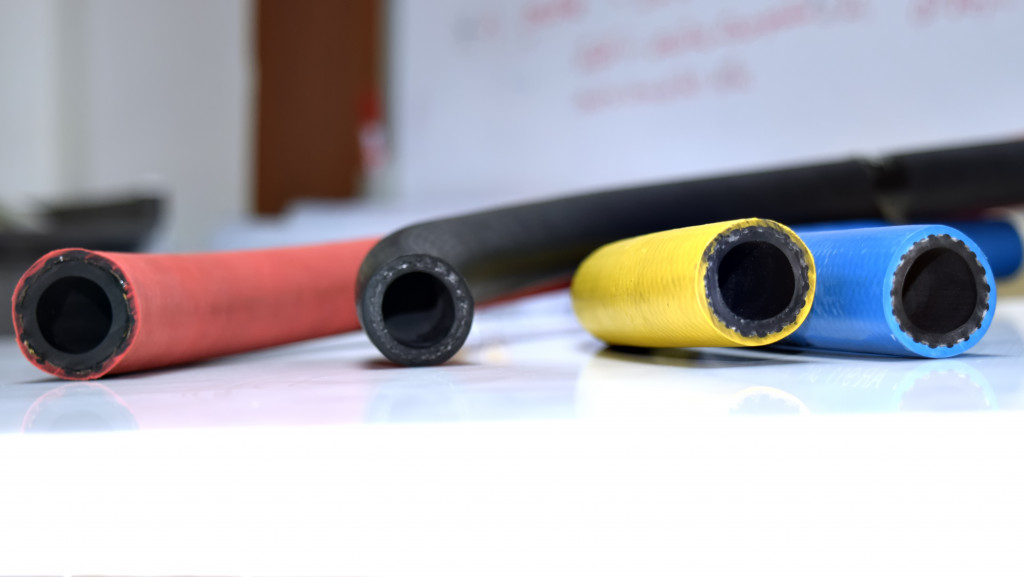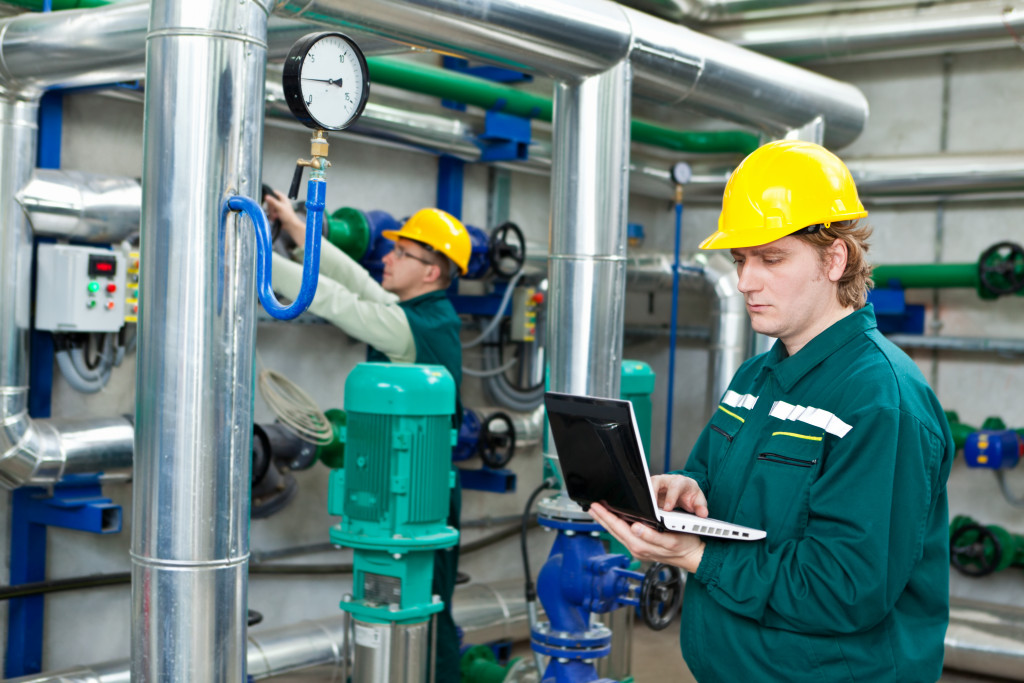Running a commercial water supply requires thorough maintenance. While a residential plumbing system needs the same thing, commercial plumbing systems may have more intricacies. For one thing, commercial pipes are normally exposed. The water tanks are also out in the open. When exposed to the elements, the pipes become susceptible to damage, such as rusting or freezing.
External and internal temperatures affect water quality. If the pipes are left under the heat of the sun unprotected, the water pressure may decrease. On the other hand, prolonged exposure to low temperatures can freeze the water and potentially burst the pipes.
For those reasons, all commercial plumbing systems must be insulated. Above-standard industrial insulation will protect pipes against the elements and preserve good water quality. But maintaining commercial plumbing systems doesn’t stop there. You also have to pay attention to the nitty-gritty.
The Weather vs. Plumbing Systems
Weather is a plumbing system’s toughest enemy. In temperatures below 30 degrees, you may notice plumbing issues, such as:
- Freezing and/or bursting — in winter, it’s common for pipes to freeze. If the water inside also freezes, the pipes will expand and sometimes rupture. When the pipes thaw, the melting water inside might cause the pipes to burst.
- Clogged drains — in commercial settings dealing with food, the oils down the drain may freeze in winter, causing clogged drains. Hence, oil shouldn’t be drained, no matter the weather.
- Clogged vent pipes — the vent pipes in the plumbing system release sewer gases while letting fresh air in. In low temperatures, snow and ice can collect inside the vent pipes and lead to gurgling toilets, sewer odors, and slow drains.
During high temperatures, on the other hand, these are the plumbing issues you may notice:
- Leaks and/or bursts — bursting pipes during summer aren’t as common as those in winter. If the pipes are old or stressed, hot weather can expand them and cause leaks. Also, if there are plants or trees near the pipes, their roots will typically spread during summer. They may reach the pipes and penetrate them, causing serious damage.
- Low water pressure — leaks disrupt the water flow, so the water pressure in the plumbing fixtures will decrease.
- Clogged drains — clogs during the summer aren’t primarily caused by high temperatures. Instead, it’s the increased use of plumbing fixtures, especially toilets, because kids are normally on summer break during that period. As such, more families visit commercial facilities and use the toilets.
How Insulation Protects Commercial Plumbing Systems

There are different ways to insulate pipes. Traditional pipe wrap insulation is the most common. This type of insulation comes in various materials, including:
- Rubber pipe
- Bubble film
- Flexible foam with rubber backing tape
- Foam-and-foil
- Foil-backed natural cotton
All of those materials are easy to install and best suited for short pipes with many bends. For long and straight pipes, specifically, foam pipe sleeves are the best material. It can be made of either foam or rubber. Both are available in self-sealing types, so they’re also easy to install. But professional help is still necessary for insulating commercial pipes.
Insulating building walls will also help maintain commercial plumbing systems. This is especially crucial if the pipes are within the interior walls or floors. The R-values of the walls should be maximized so that the building interiors can maintain comfortable temperatures during unfriendly weather.
Outdoor faucets should be insulated as well. Like pipes, they can also freeze and burst during winter. If they burst, leaks will occur outside the building, but in some cases, the faucet and the pipe burst, causing leaks in the interior walls. Use “faucet socks” to prevent this from happening.
Qualities of an Optimal Commercial Plumbing System
With proper insulation and maintenance, these qualities should apply in a commercial plumbing system:
- Adequate, safe, continuous, and reliable water supply
- Free of contaminants
- Safe internal drinking-water piped system
- Minimized risks of leakage and wastage
- Hygienic fixtures
- Building contents are protected against the effects of plumbing issues
- Adequate ventilation for toilet and washing fixtures
- Carefully designed heating systems for safe hot waters
Considering the possible issues and the high standards required for commercial plumbing systems, they’re definitely harder to maintain than residential ones. Hence, commercial building owners should employ personnel dedicated to plumbing maintenance. A leak in one pipe can cause a series of issues on a whole building. You can risk the safety of customers and tenants if that issue isn’t resolved immediately.
Be as meticulous in commercial plumbing maintenance as you would in your home’s plumbing. Given that safety is a major topic and concern nowadays, you shouldn’t skimp on anything that can affect it.

